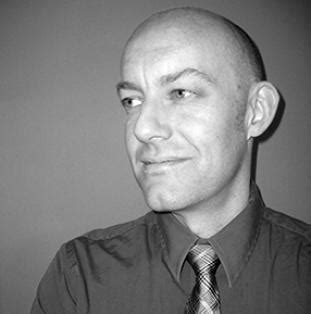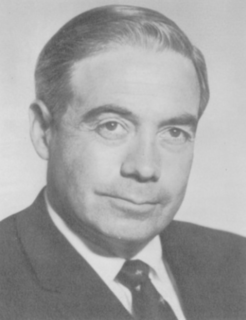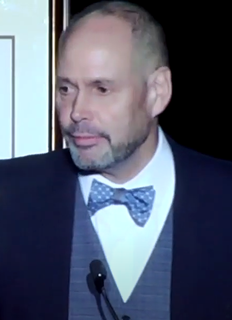A Quote by Ben Doller
Me and my wife had somehow finally reached a moment in which our lives made sense, in which we were comfortable in certain material ways, and in that very moment we were faced with a medical situation that could only really be resolved with death or time. Suddenly we had become these people who didn't drink anything but kale, who ended many of our conversations with tears, and for whom no future was guaranteed. It was kind of funny.
Quote Topics
Anything
Become
Certain
Comfortable
Conversations
Could
Death
Drink
Ended
Faced
Finally
Funny
Future
Guaranteed
Had
Kale
Kind
Lives
Made
Many
Material
Me
Medical
Moment
My Wife
No Future
Only
Our
Our Lives
People
Reached
Really
Resolved
Sense
Situation
Somehow
Suddenly
Tears
Time
Very
Ways
Were
Which
Whom
Wife
Related Quotes
Have you noticed that only in time of illness or disaster or death are people real? I remember at the time of the wreck-- people were so kind and helpful and solid. Everyone pretended that our lives until that moment had been every bit as real as the moment itself and that the future must be real too, when the truth was that our reality had been purchased only by Lyell's death. In another hour or so we had all faded out again and gone our dim ways.
What appeals to me in The Deuce is some of the same things that made me interested in The Wire, which is there seems to be a theme here around markets and capitalism and labour. This is a moment, 1971, of something that was under the counter: then brown paper bags suddenly became legal, pornography. And it was really the birth of an industry which is now a multi-billion dollar American standard. And these people were the pioneers at a moment where there really were no rules, then suddenly there was a legal industry that was allowed to exist.
At the moment of death, there are two things that count: whatever we have done in our lives, and what state of mind we are in at that very moment. Even if we have accumulated a lot of negative karma, if we are able to make a real change of heart at the moment of death, it can decisively influence our future, and transform our karma, for the moment of death is an exceptionally powerful opportunity to purify karma.
There was one element of my childhood that was really a positive asset for me. By moving a lot, I learned to assimilate into whatever new surroundings I had and to become very comfortable with people quickly. I think that was one of the strongest contributing factors to my becoming an actor, because I constantly had to readjust, even reinvent. But at the same time, it also became very easy for me not to become attached to people, places, or things. I learned to enjoy people and places for the time I had, for the moment, to be in the moment, and move on.
I remember the moment in which we were taken hostage in Libya, and we were asked to lie face down on the ground, and they started putting our arms behind our backs and started tying us up. And we were each begging for our lives because they were deciding whether to execute us, and they had guns to our heads.
In those days, we imagined ourselves as being kept in some kind of holding pen, waiting to be released into our lives. And when the moment came, our lives -- and time itself -- would speed up. How were we to know that our lives had in any case begun, that some advantage had already been gained, some damage already inflicted? Also, that our release would only be into a larger holding pen, whose boundaries would be at first undiscernible.
The places we have known do not belong solely to the world of space in which we situate them for our greater convenience. They were only a thin slice among contiguous impressions which formed our life at that time; the memory of a certain image is but regret for a certain moment; and houses, roads, avenues are as fleeting, alas, as the years.
He had the face of one who walks in his sleep, and for a wild moment the idea came to me that perhaps he was not normal, not altogether sane. There were people who had trances, I had surely heard of them, and they followed strange laws of which we could know nothing, they obeyed the tangled orders of their own sub-conscious minds. Perhaps he was one of them, and here we were within six feet of death.
There were rumors that flew about the two of us, which were complete poppycock. There was never any romance between Madonna and myself. I mean, we had a moment where we're kissing in that video [Material Girl], but she at the time was with Sean Penn, and I was married with two kids, so there was no funny business there.
I mean, in many ways, you know, I felt very connected to Ian (Dury) on, on a lot of levels. I mean, politically, & sort of, socially, our, kind of, social backgrounds are quite similar in many ways, as well as our kind of artistic endeavors. So there were many, many things that sort of chimed in for me, and kind of made me feel very instinctive about playing him, and, and although, there was sort of a certain amount of impression involved, actually, there's a lot of myself in the role.
That sense – the only true patriotism – comes slowly and springs from the heart: it is founded upon respect for the family and love for the soil. Premature ‘liberty’ of this kind would have been a disaster: we should have been torn to pieces by petty squabbles before we had ever reached political maturity, which, as things were, as made possible by the long quiet years under monarchical government; for it was that government which, as it were, nursed our strength and enabled us ultimately to produce sound fruit from liberty, as only a politically adult nation can.
Being part of The L Word made me realize how much more television can be that what I had experienced in my lifetime in terms of being able to be of service to people. I had so many fans come up to me who were really deeply appreciative of the show and what it had meant for them and their own sense of identity and their own sense of inclusion in our society and in our culture.
In the Depression, besides everybody being poor, our entertainment was much more primitive and innocent. The comic strip, which I so venerated, was still a very new form. Movies had just become talkies. Radio had just gone coast to coast for the first time. Network radio had just begun when I was a kid. So all of these forms were more or less in their infancy, and feeling their oats. Comics were fresh and funny and nervy, and in a sense, defiant of the prevailing culture.







































